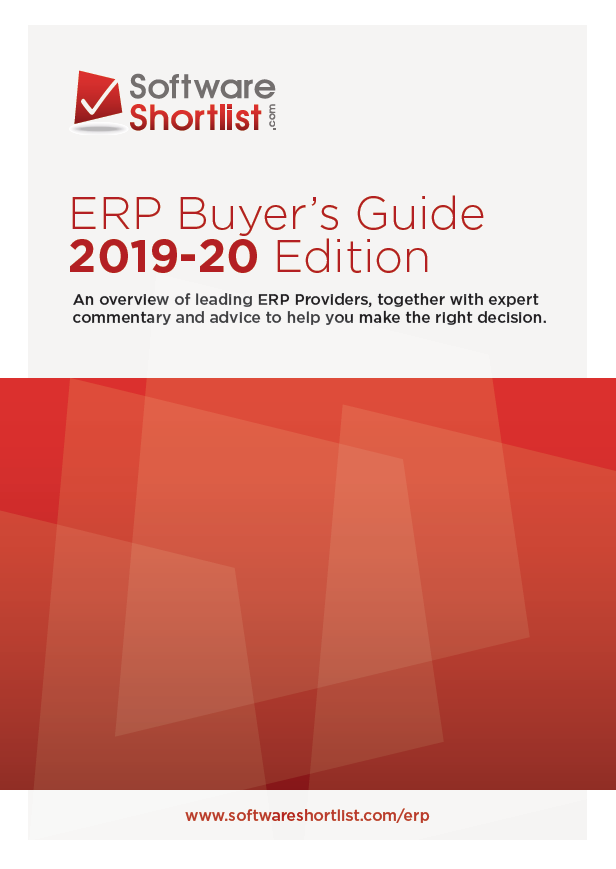A strange title, don’t you think? Surely the one and only motive for buying or hiring an ERP system is because you need one. However, in practice it is more difficult than you might expect to determine whether you truly need an ERP at all and then to properly define your ERP requirements. Let’s examine some commonly cited reasons for implementing or upgrading an ERP system and see whether they hold water.
Buying an ERP system because you haven’t got one yet
This is a wrong motive unless you really need one. An ERP isn’t something you do because others are doing it, but because your organisation truly needs it. Ask yourself: is your present working practice in itself up to standard but has reached its limits and is now an obstacle for further growth? Will an ERP system make your organisation work more efficiently? Will it reduce costs? Can your organisation make the change? If you can answer these questions with yes, than acquiring an ERP system is justified.
Replacing the present, seemingly outmoded system
This seems to be a defensible motive, but is it really? The answer depends on your specific circumstances. If your present procedures and software are indeed obsolete and cumbersome, then replacing them with an up-to-date ERP system will be a good thing. However, when the present system’s fault is only that it is “old-fashioned’ and you & your staff are satisfied with its performance, why should you replace it?
Replacing an old ERP system with a new one should only be considered when it is clearly beneficial. Will the new system make your organisation more efficient than it already is? Are the operational costs less than the old system? If the answer to both these questions is no, then stick to your present system.
The present system cannot cope with the increase of transactions
Your sales are going up and your organisation can hardly cope with this growth. Before thinking of a new ERP system you must know what the real bottlenecks are. Do you lack manpower or machine capacity? Is there not enough working space or storage room?
Only when you have eliminated all possible other constraints then have look at your ERP system. Does it need more hardware? Does it need more data storage or more workstations? Will extra modules enhance the system in a useful way? For instance will the sales order system work better if you add a module for bids and offers to it? Or is a more sophisticated production-planning module needed?
Ask yourself such questions before thinking of buying a new ERP system. Changing ERP systems should not be considered lightly, given the significant time, cost and risk that migrating to a new platform involves.
Your present procedures need a shake-up
Perhaps you are not at all satisfied with the way your company operates. You lose clients because of late delivery of goods or services. Too often products or services are sub-standard. You are convinced that the production department could do far better and inventory control is in a shambles. Some of your business peers seem to be better in control of their company than you are and use ERP systems with great success. They encourage you to follow their example by implementing an ERP system in your company. This advice seems good but it isn’t.
On the contrary, the worst thing you can do in these circumstances is implement a new ERP system – it will only multiply your problems exponentially. Put the idea of an ERP out of your mind until you have redesigned your processes and brought the performance of your company up to a reasonable standard. When you are satisfied with the improved working routine then you can start thinking of using an ERP system.
Conclusion
If you do not have an ERP system yet, consider buying one only if you are satisfied that you really need one and that the benefits are clearly defined. Only replace an old ERP system when you really have to and again when it is beneficial to do so.
If your organisation is growing fast and it can hardly keep up with this growth, perform a thorough examination of the bottlenecks and find out whether they can be eliminated without the use of an ERP system. An ERP system is certainly not a universal remedy for bad working practices, if anything it makes matters worse.
Of course, ERP systems can be very advantageous when properly used. The point being made in this article is simply that you shouldn’t move quickly and over-enthusiastically to buy one without being sure that you truly need it. The decision should be made in a well-considered manner, recognising that the correct selection and effective implementation of an ERP system requires thorough preparation.



